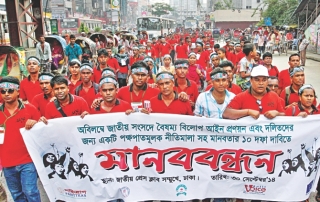Caste discrimination, child labour and the Nobel prize
Caste discrimination is a key factor behind child labour in India, home to the highest number of child labourers in the world. This is the message coming from experts on child labour. The Nobel Peace Prize winner, Kailash Satyarthi, also explains how witnessing caste discrimination as a child spurred on his engagement with fighting for the rights of the most marginalised.










